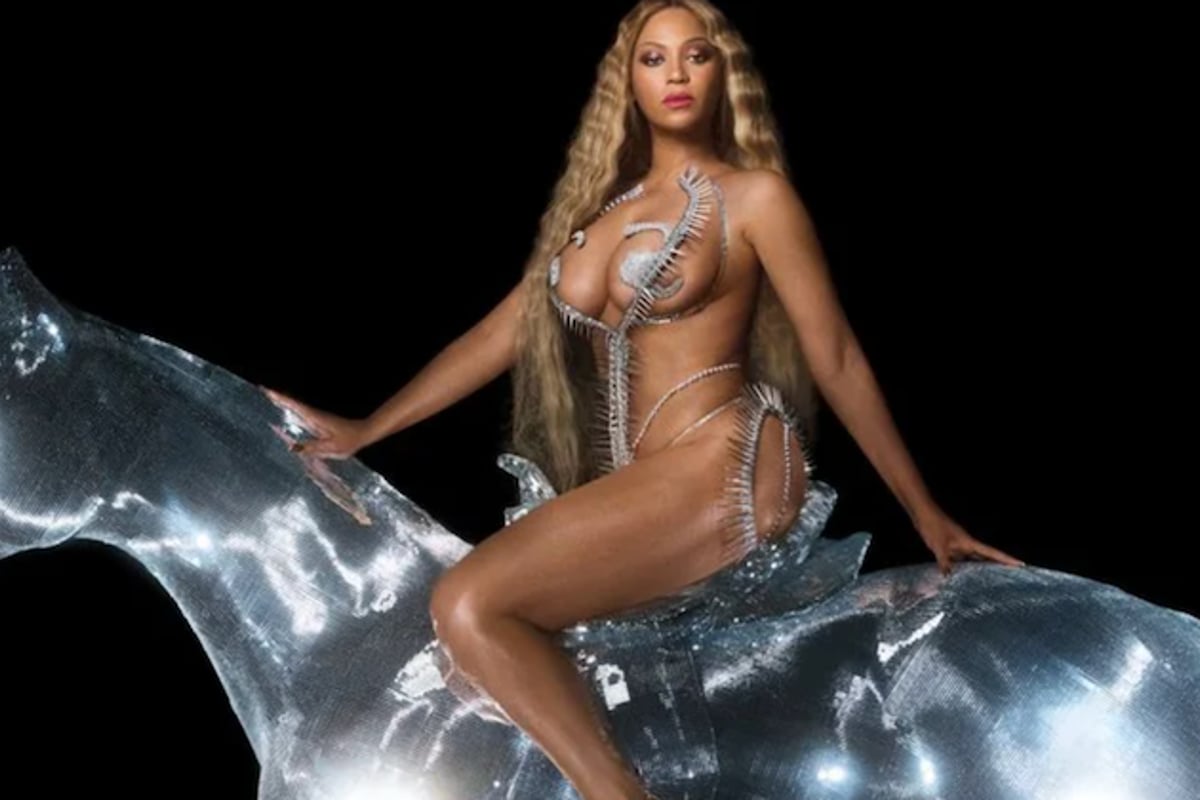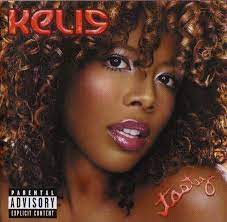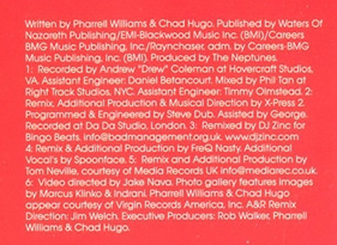Kelis vs Beyonce (Or Sampling vs Interpolation)

90’s RnB legend, Kelis, took to social media last week to express her unhappiness at the fact that a portion of her mega-hit, “Milkshake”, has been used on the new Beyonce track “Energy”, and that she wasn’t told about it. She found out when everybody else did … when the song was released. “It’s not a collaboration, it’s thievery,” she said.
It’s since been reported that Beyonce’s team quietly removed the offending part from the song altogether and reuploaded it (the joys of retroactive production in the streaming era… Ask Kanye about it).
The general sentiment that I’m hearing is this (in my words):
“Kelis is pissed because Beyonce sampled her song without asking/telling her”.
There’s a bit more to it than that so let’s break it down, word by word in painful detail, to find out what’s going on here …
“Kelis … ”
This is the mononymous stage name (and given name) of US musician and performer Kelis Rogers. When you check out a Kelis record that’s the name you see on the front:
When Kelis Rogers has a writer credit on a song she will likely be listed by her actual name, rather than her performer name (even though they are kind of the same). For example:
I know it seems over-engineered to point this out but the distinction between the concepts of performer and songwriter will be important later.
“… is pissed because … ”
You get it … Kelis has posted a couple of videos about the situation and she’s not happy, on a few levels.
“… Beyonce … ”
As above, this is the mononymous stage name of US musician and performer Beyonce Knowles. The name Beyonce will be seen anywhere she is performing while any songwriting credits will appear as B. Knowles or similar.
“ … sampled … ”
OK, here is where we need to make some distinctions.
A “sample” as it’s traditionally known, is a sample of a sound recording. That is, someone has taken a snippet of an existing recording and reused it in their own recording. When using a sample you need to get permission from the owners of the copyright in that sound recording or track (often the record label) and also the permission from the owners of the copyright in the underlying composition or song (often the publisher).
For example, if I want to sample a piece of Jimi Hendrix’s “All Along the Watchtower” I need to get permission from the owners of that recording (let’s say it’s Jimi Hendrix’s record label) and permission from the owners of Bob Dylan’s songwriting catalogue (Universal, since they bought it in 2020).
But here’s the rub: The Beyonce song has used an interpolation, not a sample, of “Milkshake”.
An interpolation is the usage of an existing composition without using a sample of the sound recording. This can be done by recreating the recording yourself, note for note. Or it could be that you’ve recreated a part of a melody and added different words, or maybe you even used the same words. Either way, to use an interpolation you only need permission from the owner of the composition, not the owner of the sound recording (because you didn’t use any of the sound recording).
Case in point: The Sugarhill Gang didn’t sample the bassline from Chic’s “Good Times” for their track “Rapper’s Delight”, they re-recorded it. Interpolated it. So, while Nile Rodgers and Bernard Edwards get writing credits on the song, their label doesn’t receive royalties on the master side.
Also:
And:
He had to sue for it, but Manu Dibango is credited as a songwriter on “Wanna be Starting Something” because of MJ’s little riff on the Soul Makossa refrain.
100% of the composition of “Milkshake” is credited to Chad Hugo and Pharrell Williams (known in their producer role as The Neptunes).
0% is credited to Kelis Rogers.
Credit from the ‘Milkshake’ CD single cover art
Credits per the APRA Work Search
“Her song …”
Identifying “Milkshake” as Kelis’ song is not as straight forward as it sounds.
She is inextricably attached to that song, of course. She performed and recorded it. It was a massive hit. Millions of copies sold, the video was everywhere, it was all over every End of Year compilation, the song paved the way for others that came after. “Milkshake” by Kelis was huge. In that way, it’s clearly a Kelis song.
But as far as ownership goes it’s likely that her record company owns the sound recording of that song, for which she would be paid a royalty on sales/streams, and the ownership in the underlying composition rests with Pharrell Williams and Chad Hugo’s publishers, for which Kelis receives nothing at all.
“ … Without asking/telling her.”
Again, if all of the above is correct then it’s established that no permission was needed from Kelis to use an interpolation of the composition underlying the recording “Milkshake”, recorded and performed by Kelis, produced by The Neptunes, with songwriting credit to Hugo/Williams.
Maybe it would’ve been nice for Beyonce to reach out to Kelis and mention it, if that’s the kind of relationship they have. But as far as copyright law and the concept of theft is concerned, there was no obligation to talk to Kelis about anything.
With all that said, there are some other fish to fry here. One issue is the very fact that Kelis has no songwriting credits on the song at all. She has claimed that Williams and Hugo had “lied and tricked” her into a raw deal. Instead of splitting things “33/33/33”.
Kelis only has writer credits on six out of the 14 tracks on the album “Tasty”, from which “Milkshake” was taken.
To me, this is a problem.
In the music world, there are no hard and fast rules for how writer credits are handled or registered. It’s solely down to the people involved. Lennon and McCartney take writer credits for most Beatles songs. But who’s to say that the drum part Ringo played in “Come Together” wasn’t integral to the composition of the song? Answer: No-one is to say that, except the people in the room at the time when deciding how to divvy up the splits.
Famously, Radiohead credit every member of the band as songwriters on almost all their songs, even though Thom Yorke may bring in a fully formed song for the band to play. That’s totally their business. As an aside, Radiohead also had to credit Albert Hammond and Mike Hazlewood on their song “Creep”, due to the pair taking them to court over similarities to The Hollies hit “Air That I Breathe”.
On another somewhat related note, Twitter blew up this week when superstar songwriter Dianne Warren tweeted:
“How can there be 24 writers on a song?”
People have taken this as a passive/aggressive jab at Beyonce, and the wider black music community, for the amount of names that appear in the credits of “songs these days”. There have been many takes on this tweet and the ratio is real. I won’t go into too much depth here but a tweet reply from Questlove articulated a couple of points really well:
“In these post “Blurred Lines” times you’re gonna see a lot of it. I actually applaud her giving people a seat at the table who otherwise woulda NEVER been considered otherwise. Like she didn’t “have to” credit the “Show Me Love” crew but just outta respect she did them a solid.”
He goes on:
“Imagine if Led Zep, The Stones, Beatles, British Invasion did the due diligence — — -and credited the people to whom their catalogue is derivative from?”
There are a couple of things to note here:
- Dianne Warren has boomer takes drenched in “musicians these days don’t even play REAL instruments!!” energy.
- Lawsuits like the “Blurred Lines” case have made people overly careful to credit not only samples and interpolations but also “vibes” and “feels”… anything that could possibly end in a lawsuit.
- More and more these days “everyone in the room” is getting credit for the outcome of a session. Peoples’ input is being recognised and they’re being rewarded for it. Maybe as it should have been back in Dianne’s day.
- People have been using past influence to make music for a long time. Notably, white musicians using music of black origin. A difference now is that people are (sometimes) getting credited for it. This tweet from Zack Fox lives with me rent free:
“if you watch the elvis movie backwards it’s about a white dude waking up next to a toilet and giving black people their music back”
Should Kelis have a writer credit on “Milkshake”? Probably. It would be hard to imagine that she lent nothing to the song’s creation. Her whole persona and energy could have shaped aspects of the composition that wouldn’t be the same without her.
As mentioned above, according to Kelis, there was a prior agreement in place for writer credits to be split equal thirds with the Neptunes guys and it wasn’t followed through with. Chad and Pharrell own 100% of that song between them. Kelis: 0%. That speaks to more than just copyright law.
Matt Bird is a partner and senior royalty analyst at White Sky Royalty Accounting.
This piece was originally published on Medium and has been republished here with permission.


































